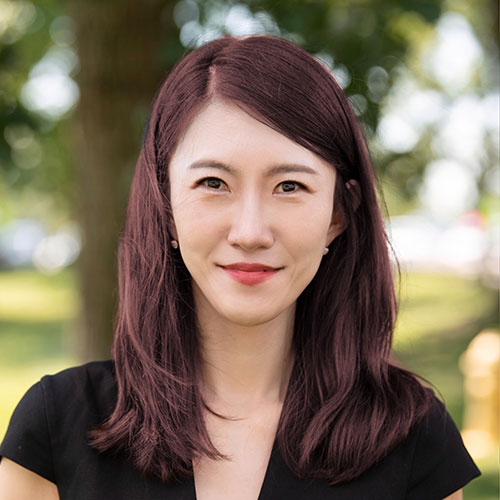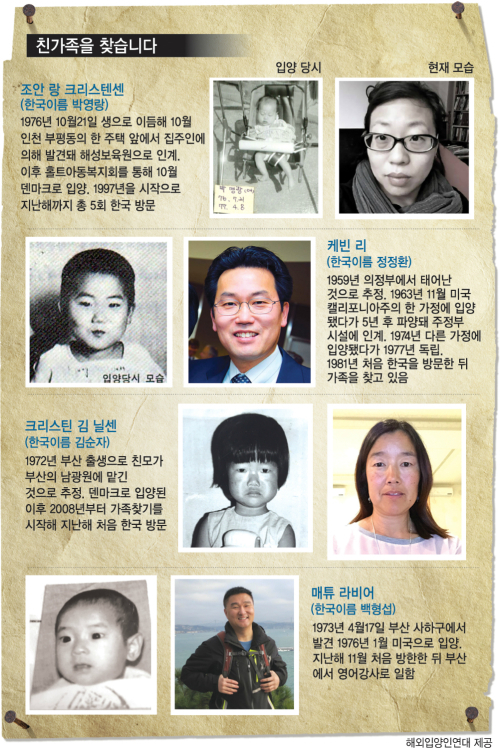
Sina Lee receives grant to explore motherhood, migration, and adoption in Asia

Sina Lee, visiting assistant professor in women’s, gender, and sexuality studies at The College of Wooster, received a grant for preliminary fieldwork to explore the stories of marginalized mothers in Taiwan and lost narratives of adoptees and their birth mothers in South Korea. The Social Sciences Research Council (SSRC) funded the Short-Term Seed Grant for Collaborative Research Development that requires collaboration of early-career scholars in the social sciences, humanities, and related fields who are based in the United States or Asia.
Lee is collaborating with Tzu-Chi Ou of National Chengchi University International College of Innovation in Taiwan. Their joint research is titled, “Lost in Asia: Gendered Narrative of Migrants in Taiwan and South Korea.” Lee’s focus is about transnational adoptees from South Korea. Ou is interested in how motherhood drives migration and impacts Asian migrants’ precarious circumstances.
“Ever since the Korean War ended in 1953, there have been a lot of South Korean adoptees to the United States. Since the 1990s, many of these adoptees have returned to South Korea to find their roots, to learn about their heritage, or to connect with their birth mothers,” Lee said. She hopes her research will shed light on these birth mothers’ forgotten stories and demonstrate the complicated relationship among the adoption triad: the birth mothers, adoptive mothers, and adoptees.
From September through November, Lee will use the funds to conduct virtual interviews and do literature reviews of migration, gender, and adoption studies. In December, she will travel to her native South Korea during Wooster’s winter break to interview Korean adoptees’ birth mothers and adoptees staying in South Korea. Ou will focus her preliminary fieldwork through December on Indonesian migrant workers in the Serve the People Association shelter in Taiwan. She plans to interview 10 migrant workers and five migrant activists, focusing on the unsettled life of migrant mothers and how they find support to build families in Taiwan despite facing the threats of losing their jobs or deportation.
In about mid-December, the research team will work together on a draft version of their research to submit to journals, such as Journal of Ethnic and Migration Studies, Asian and Pacific Migration Journal, International Migration, Feminist Studies, or Gender, Place & Culture.
 As a child, Lee became interested in gender and motherhood when she learned about the situations of some of the women hired in her parents’ business in South Korea. The women often talked about how much they missed their children. “At that time in South Korea because of social stigma and financial situations they could not raise their children by themselves. I realized being a mother and raising children is not something that is taken for granted. When I came to the United States for my Ph.D., I didn’t know much about the adoption issue, but by accident I met a lot of adoptees. There were so many birth mothers and adoptive mothers, and I wondered why birth mothers in South Korea had to give up their children and why adoptive mothers in western countries had to adopt babies from overseas to become mothers. The adoptee issue for me became a motherhood issue,” Lee said.
As a child, Lee became interested in gender and motherhood when she learned about the situations of some of the women hired in her parents’ business in South Korea. The women often talked about how much they missed their children. “At that time in South Korea because of social stigma and financial situations they could not raise their children by themselves. I realized being a mother and raising children is not something that is taken for granted. When I came to the United States for my Ph.D., I didn’t know much about the adoption issue, but by accident I met a lot of adoptees. There were so many birth mothers and adoptive mothers, and I wondered why birth mothers in South Korea had to give up their children and why adoptive mothers in western countries had to adopt babies from overseas to become mothers. The adoptee issue for me became a motherhood issue,” Lee said.
Ou became interested in migration issues when she learned that many Bangladesh migrants, mostly women, lost their legal status and their right to be mothers to their children when they migrated to Taiwan for work. Because they were women and had babies, they became undocumented immigrants.
Together, the collaborative project “challenges existing master narratives of Asian migration by illustrating how it is a phenomenon of gender, race, and colonization. Our project contributes to Asian, migration, and feminist studies by initiating discourse within the fields to illustrate untold stories of diverse Asian populations in the margins of global society,” Lee said.
Because the topic is timely in today’s global environment, Lee is working with the women’s, gender, and sexuality studies program to offer a course, Politics of Transnational Adoption: Intersectional Analysis of Class, Race, Gender, and Nationality, as early as spring 2023.
Lee and Ou’s long-term plan is to develop a robust project with other scholars who also are doing research to “embark on new areas of intersectional inquiry regarding Asian migration and its relationship with motherhood and gender,” Lee said. She hopes the SSRC grant will lead to additional funding, with a goal to edit a special volume on the topic under the temporary title, “Precarious Dreams of Asian Migrants: Forgotten Stories of Gendered Histories of Asian Migration.”
Image 2: This picture delivers information about adoptees who want to find their Korean birth parents. The picture is from Global Overseas Adoptees’ Link, founded by adoptees from the US and Europe who returned to Korea in 1998.
Posted in Faculty, News on September 15, 2022.
Related Posts
Related Areas of Study
Women's, Gender, & Sexuality Studies
Champion the experiences of women as they intersect with race, nation, ability, class, religion, and other axes of difference
Major Minor

